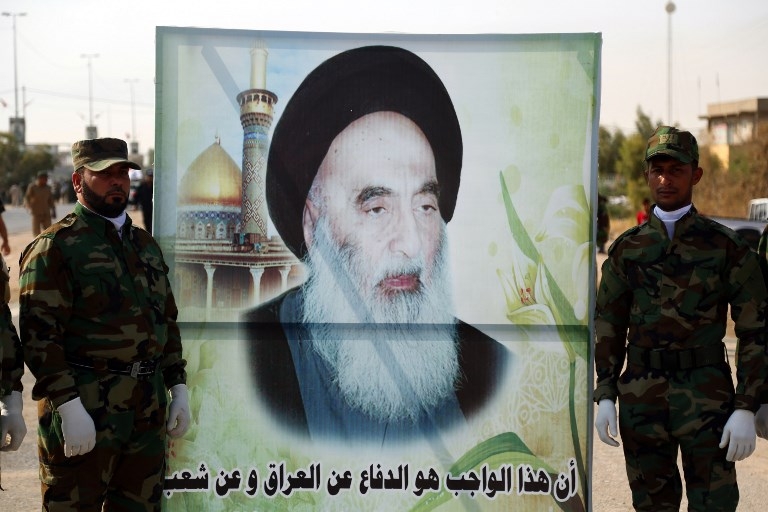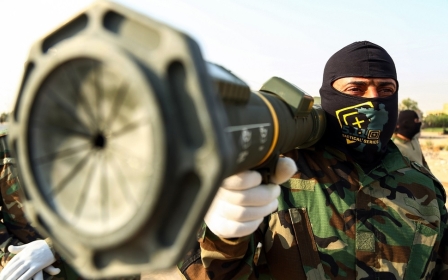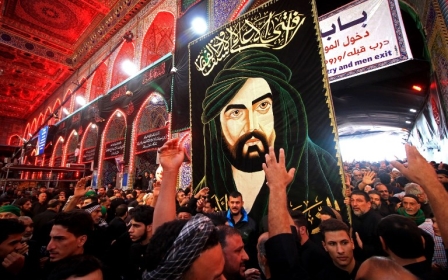Top Shia cleric opposes disbanding of Iraq's Hashd militias

Iraq's most revered Shia cleric, Ayatollah Ali al-Sistani, on Friday opposed calls to disband a controversial paramilitary force which was instrumental in defeating the Islamic State group in the country.
Iraq is "always in desperate need of heroic men who have backed up the army and federal police and who fought alongside them on different fronts", said Abdel Mahdi al-Karabalai, the ayatollah's representative.
"We need to continue to benefit from this important source of energy, within the constitution and judicial framework," he said in a sermon at weekly prayers in the Shia holy city of Karbala, south of the capital.
The nation’s top Shia cleric also said that the paramilitary groups should be incorporated into state security bodies while all weapons used in fighting the Islamic State should be brought under the control of the Iraqi government.
Commenting on the move, Hashd spokesman Ahmad al-Assadi, who is also a member of parliament, told AFP on Friday that Sistani had stood up for the units to be retained as part of Iraq's security system.
Karabalai stressed that the Hashd al-Shaabi's arms belonged to the state and its mission was to defend national security.
Sistani's remarks come after influential Iraqi cleric Muqtada al-Sadr called earlier this week for the leaders of the Hashd al-Shaabi forces not to take part in upcoming parliamentary elections, and to hand over their weapons to state forces.
Sadr had also called on his own militia, Saraya al-Salam, to disarm and give their weapons to the government.
The force was established in 2014 after Sistani urged Iraqi citizens to take up arms against IS who had swept aside government forces and seized control of much of northern Iraq.
But the Hashd, a Shia-dominated alliance, remains controversial and has been accused of a string of abuses.
Known in English as the Popular Mobilisation Units, the various forces within the Hashd can field a total of between 60,000 and 140,000 fighters.
Iraq's parliament has classed it as a state force operating within the constitution.
Calls have been growing from the West for the Hashed to disband, with French President Emmanuel Macron proposing "a gradual demilitarisation" of the group and for all militias in Iraq to be "dismantled".
However Mahdi al-Muhandis, the deputy commander of the Hashd, told Middle East Eye that the force had gained experience in battling militants and was complimentary to the Iraqi armed forces.
"The future of the Hashd is to defend Iraq. We need military forces that have this experience of battling terrorists and any international threats, and Iraq must maintain enough force."
According to the head of Hashd media team Muhunnad Najam al-Aqabi, the 140,000-strong force currently includes 34,000 Sunni fighters and about 10,000 from Iraq's minority faiths, including Christians, Shabaks and Yazidis.
New MEE newsletter: Jerusalem Dispatch
Sign up to get the latest insights and analysis on Israel-Palestine, alongside Turkey Unpacked and other MEE newsletters
Middle East Eye delivers independent and unrivalled coverage and analysis of the Middle East, North Africa and beyond. To learn more about republishing this content and the associated fees, please fill out this form. More about MEE can be found here.




